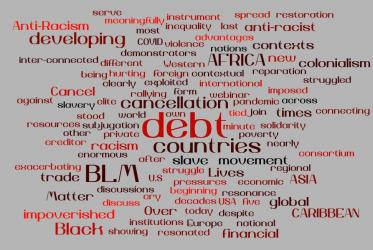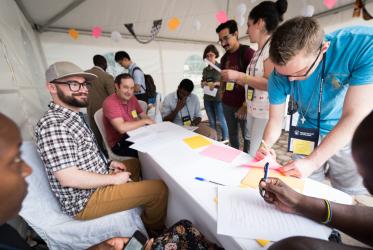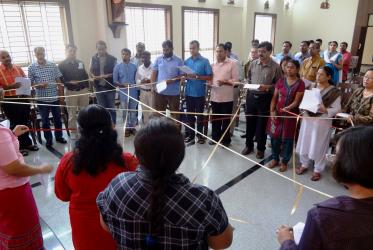Displaying 1 - 18 of 18
Learning exchange focuses on human rights among indigenous people
06 December 2018
‘Sokoni’ transforms marketplace into mission
13 March 2018
GETI students plant trees, in service for greener future
07 March 2018
Standing Rock decision ”Gospel news” for indigenous communities
08 December 2016
WCC/UN conference calls for coordinated action on refugee crisis
20 January 2016
Land rights focus of panel discussion
17 November 2015
WCC dedicates prayer service to Sustainable Development Goals
23 September 2015
Reclaiming our humanity
23 June 2015
Indian churches reflect on the WCC assembly theme
26 August 2013













